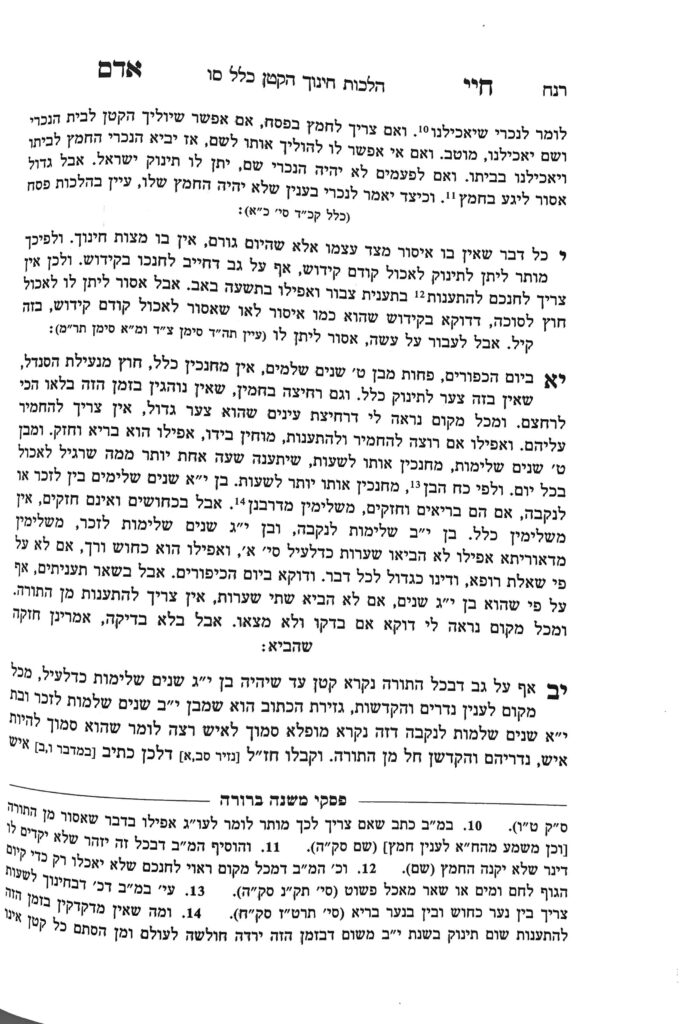We are continuing in siman 11, where the Chayei Adam wrote that once a child has reached 11 years of age, they should fast the entirety of Yom Kippur (unless they are weak). In siman 516:sk 9, the Mishnah Berurah points out that nowadays, we dont not have our children fast until they are bar or bas mitzvah, because we assume they are weak. If one is certain that the child is strong and healthy enough to fast, they may do so, but without that certainty, one should assume the child is too weak.
There is a minhag for a child to fast three taaneisim before their bar or bas mitzvah. However, Rav Shlomo Zalman Auerbach ztl writes that there is no known source for this minhag, so even if one was raised in this manner by their parents, they do not need to impose it upon their own children. As mentioned earlier, if the child is weak, there is certainly no need to follow the minhag.
Even those who follow this minhag would not have a child fast on both Tzom Gedaliah and Yom Kippur, because they are so close to each other.
We learned that the Chayei Adam allows a katan to be motzi others on dinei derabanan even when we are unsure if the child has achieved physical maturity. However, regarding a chiyuv deoraysa, we do not rely on the assumption.
- One example of this concept includes hataras nedarim. The hataras nedarim done on erev Rosh Hashanah is primarily for dinei derabanan, but otherwise, if one wishes to actually be matir neder, they must go to a beis din of three, and ensure that all the dayanim are gedolim.
- Similarly, one must be careful about having a katan perform tevillas keilim (for metal keilim, which are chayiv mideoraysa) on their behalf. Although a katan can do the actual tevillah, they are not believed to testify that they accomplished their task, so one cannot send them to perform tevillas keilim.
- Regarding Parshas Zachor as well, since the chiyuv to hear it is deoraysa, the person laining must be a gadol mi’deoraysa. This issue plays out regarding a bar mitzvah boy whose parsha falls out on parshas zachor, but, nonetheless, we are not meikil.
Summary
- Although the Chayei Adam wrote that a healthy child can begin fasting from age 11, the MIshnah Berurah writes that nowadays, children are assumed to be weak, and should not fast.
- The source of the minhag to have a katan fast on the last three taaneisim before their bar or bas mitzvah is unclear.
- There is a halachic assumption that when a child reaches the age of bar/bas mitzvah, they have reached physical maturity as well. We rely on this for dinim miderabanon but not mideoraysa..



